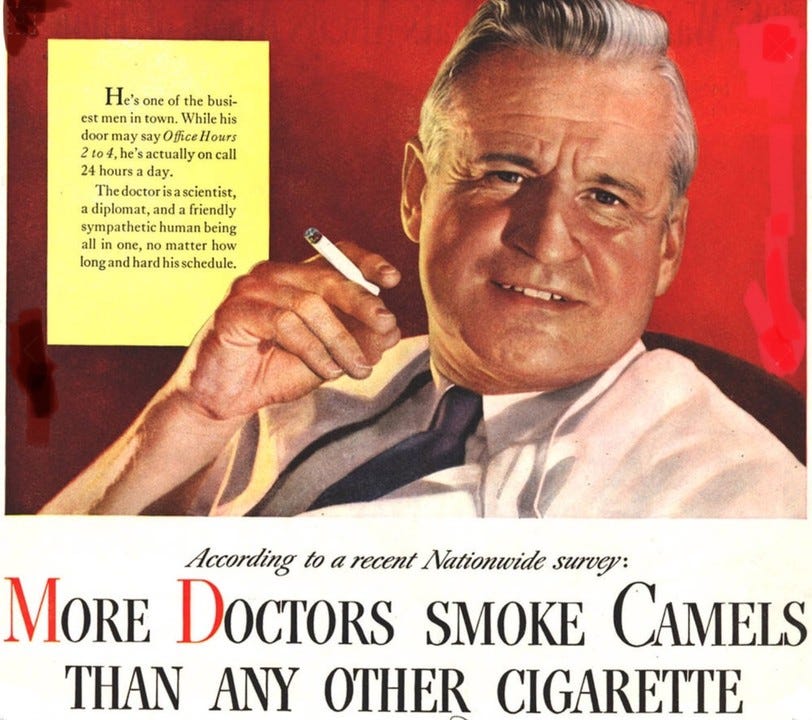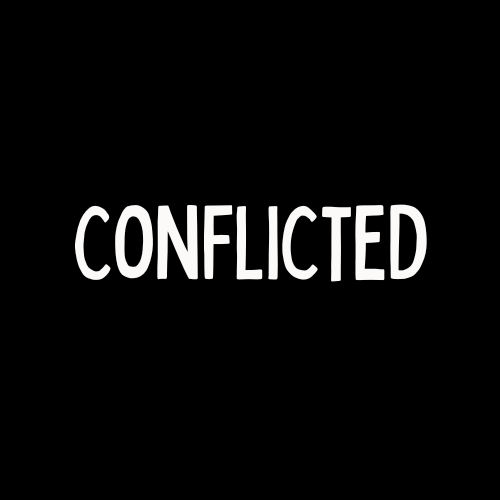"When scientific integrity is undermined in pursuit of financial and political gain"
Explosive testimony this week argues that climate research has a serious conflict of interest problem
Recently I was surprised to see a Tweet from a climate researcher who I’ve known for a while that looked like an advertisement for a particular renewable energy company. The researcher was promoting the company to his many followers. Reading on, I saw that the researcher disclosed that he was being paid by the company and had an equity interest. So it was an advertisement. Academics can also be investors, right? So no problem?
Well, here is the problem. This researcher was one of the central analysts whose work was used to design and then promote the passage of the Inflation Reduction Act. The company he is promoting is a direct beneficiary of that legislation. At the same time, the researcher claims that his analyses offer an “independent environmental and economic evaluation of federal energy and climate policies.” BS. There’s a sucker born every minute.
I called out the researcher on Twitter for taking money not just from one but from many companies that are direct beneficiaries of the legislation he helped to design and sell to policymakers and the public. He responded to me in a huff — proclaiming his noble intent and track record of advocacy for renewable energy for many years (almost as bad as the climate researcher who told me she could not have a conflict of interest because her husband was a preacher). All that may well be true, but goodness, this absolutely stinks.
I’m not naming the researcher (you can find him easily enough), because his case is far from unique in climate research these days, and this post is about a far bigger more important issue.
There is a gold rush going on in climate research right now, as researchers scramble to cash in on their new-found access to politicians and philanthropists. As Professor Jessica Weinkle of the University of North Carolina-Wilmington stated in her opening remarks in testimony before the U.S. Senate last week, “Today, it is not easy to separate the going-ons in climate change research from the special interests of financial institutions.”
She continues:
The landscape of climate change research is made complicated by an outcropping of non-profit advocacy organizations that double as analytic consultants, hold contracts with private companies and government entities, and engage in official government expert advisory roles- all while publishing in the peer reviewed literature and creating media storms.
This is not really an issue of any one entity. It is pervasive.
Experts monetizing their expertise is one important reason why people become experts, and there is no problem with people seeking to make a buck. But where expertise and financial interests intersect, things can get complicated. That is why there are robust mechanisms in place for the disclosure and mitigation of financial conflicts of interest, a subject I’ve focused on for decades.
All of this is just common sense. Your doctor can’t prescribe you drugs from a company that pays him fees. You wouldn’t think much of a report on smoking and health from a researcher supported by the tobacco industry. Should climate researchers play by a different set of rules, because the cause is so important?
Call me a stickler, but in my view, the more important the cause, the more important it is to enforce standards of research integrity.
Following her testimony, Weinkle addressed a few questions that were raised at the Senate hearing. Here is her response to the first one:
Well… I don’t know if it was really a question. It was a set up to imply that the only conflicts of interest that should matter are those coming from the fossil fuel industry.
I don’t agree. At. All.
Frankly, that’s absurd.
In fact, when people argue that the only conflicts of interest that matter are those held by their opponents they are saying that the rules of the game don’t apply to themselves or those that support them.
Conflicts of interest are a concern for scientific integrity no matter where the money is coming from.
Further, it was implied in the hearing that only the fossil fuel industry hides what they are doing by donating to non profit groups that then do research. No.
I encourage you to read Professor Weinkle’s testimony in full. She cites three examples of many that raise serious questions of financial conflicts of interest in climate research (see the testimony for all the footnotes, which I removed here):
Central bank stress testing scenarios are developed by researchers who are also lead authors on IPCC reports and have important roles in organizing the international modeling community in the development of IPCC scenarios. Funding for central bank scenario development and the most recent meeting of the scenario modeling community comes from influential organizations including, Bloomberg Philanthropies, ClimateWorks, and the Bezos Earth Fund.
McKinsey & Company used a climate consultancy to produce a series of widely influential reports on climate change financial risks. In defense of their use of RCP 8.5 the report cited a peer-reviewed publication written by its own consultants. The researchers did not declare their COI as consultants for McKinsey or their association with the asset management firm, Wellington. Shortly after publication of the article one of its authors landed a political position while the authors’ home institution announced coordinated efforts with Wellington to influence SEC regulatory decisions.
The Risky Business Project, an academic-industry research collaboration was organized by three wealthy politicians with the goal to “mak[e] the climate threat feel real.” Research products are important components to national climate and sea level rise assessments, and a policy advocacy tool used to evaluate real estate flood risk. Core members of the research collaboration move seamlessly between private consulting, policymaker science advisory positions, and academic research.
Again, this stinks.
Nothing could be more delegitimizing to climate science and policy than a toxic combination of unmitigated financial conflicts of interest and claims that climate researchers, by virtue of the noble cause, are exempt from the rules that govern every other setting where expertise and money intersect.
I’ll let Professor Weinkle have the last word today:
Climate change science demonstrates an underappreciated dynamic system of conflicts of interest among climate change researchers, advocacy organizations, and the financial industry.
If you haven’t subscribed to Professor Weinkle’s Substack, called Conflicted — run, don’t walk, and sign up — link below.






Prof. Weinkle left off one important co-conspirator - the federal government.
Roger, I think you should name these people. Just as they named you during the years when they hounded you for not adhering 100% to the alarmist agenda. Lay it out. Put it on the table.